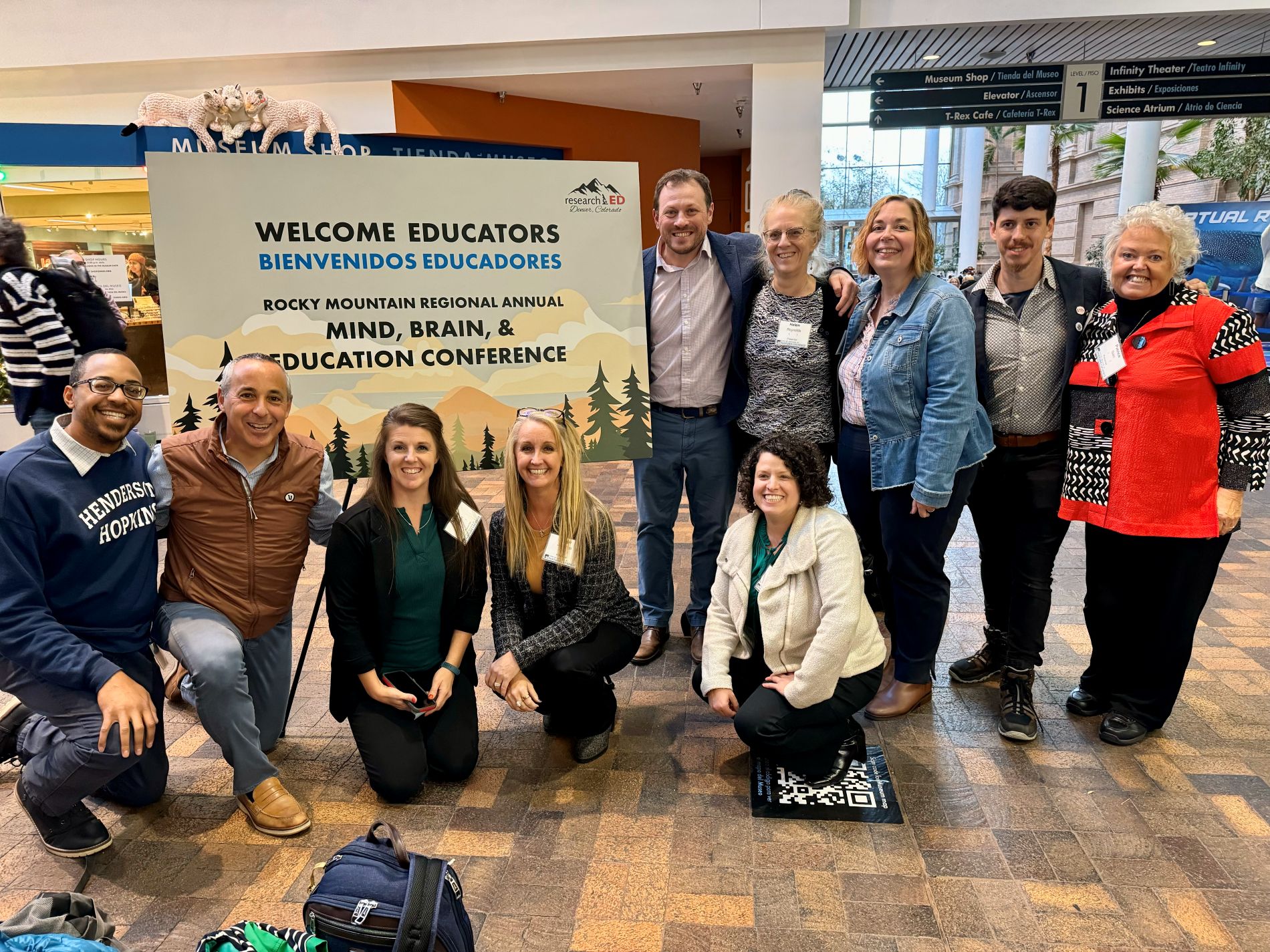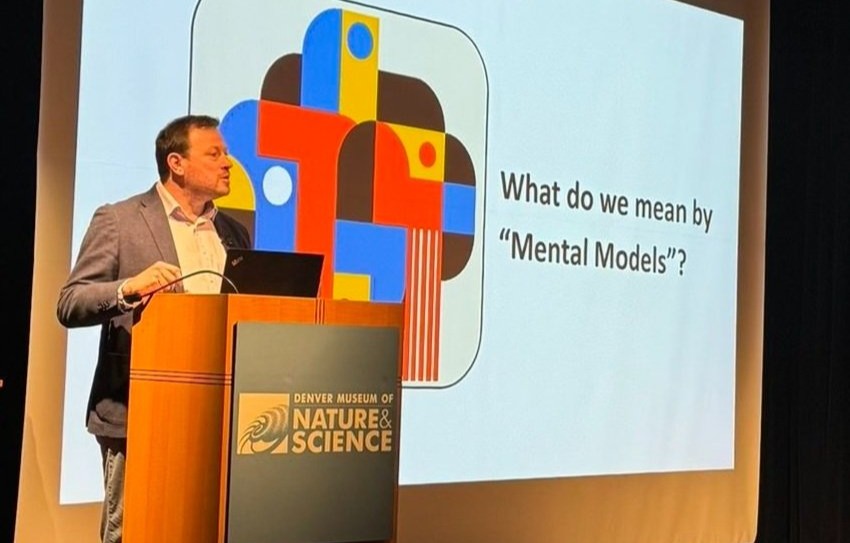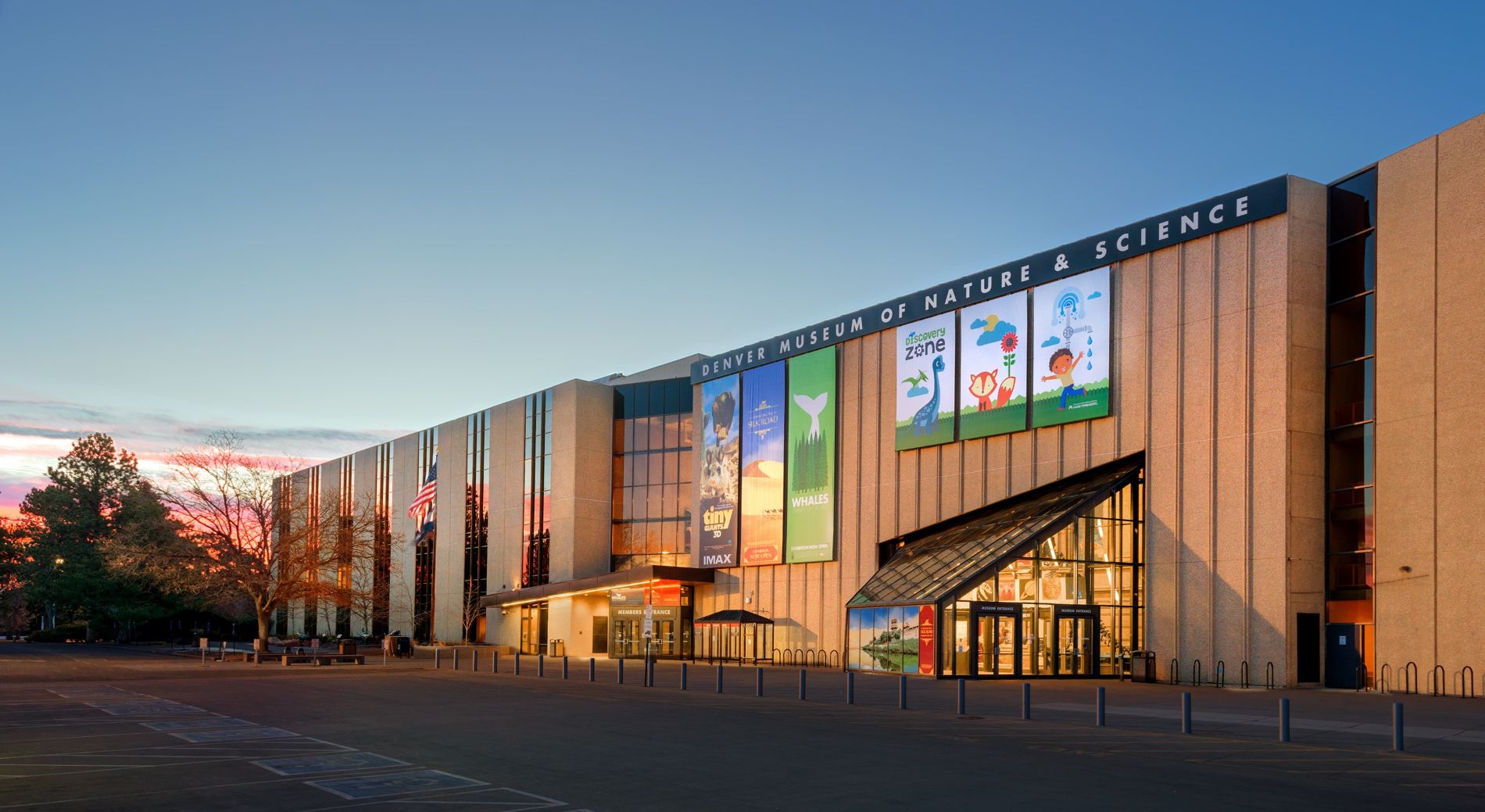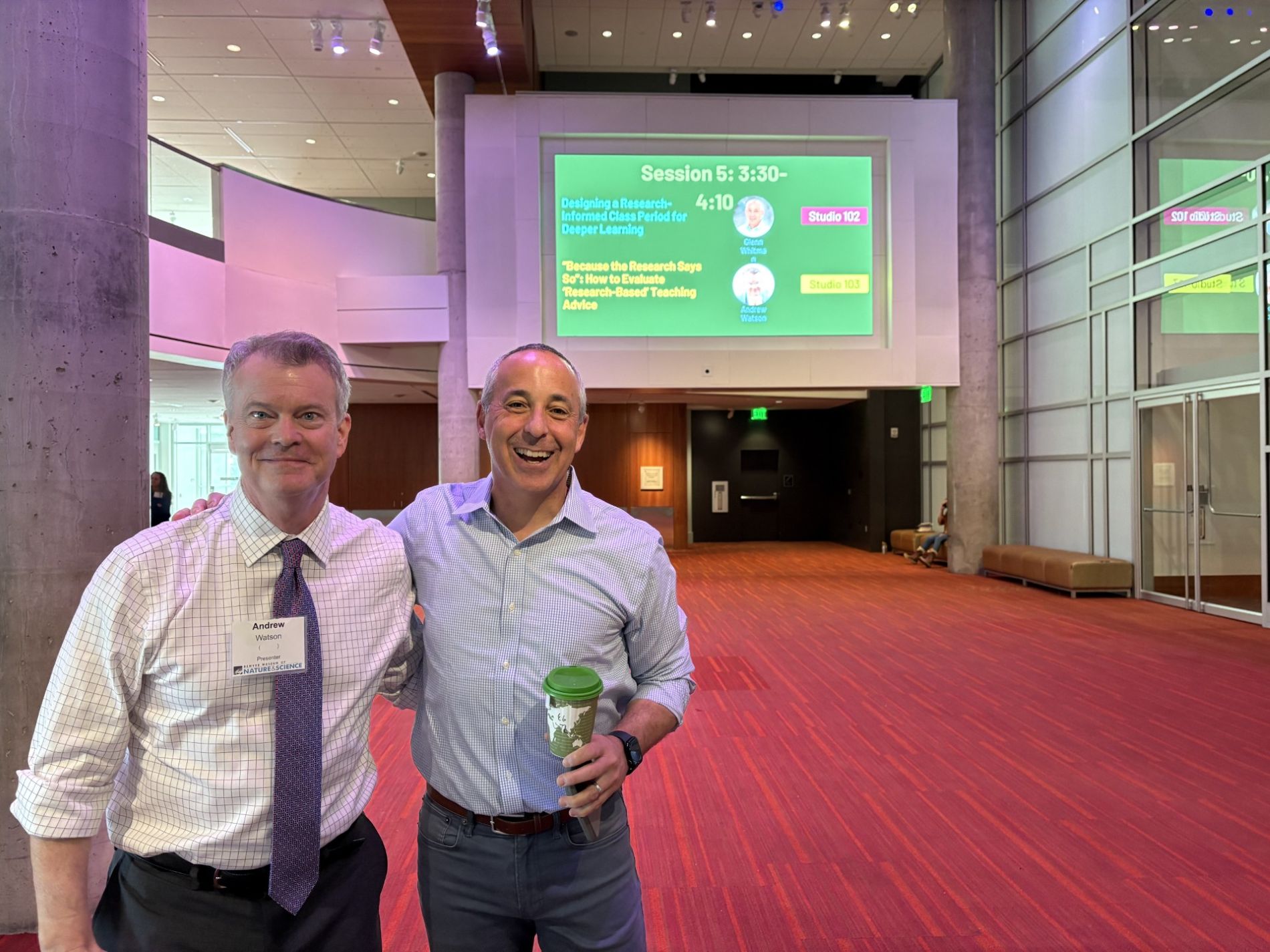CATALYST
DENVER MUSEUM OF NATURE & SCIENCE ONLINE MAGAZINE
Rocky Mountain Mind, Brain and Education Conference Returns to Denver
Educators Have an Opportunity to Harness the Latest Research-Informed Strategies in the Classroom

Presenters at the 2024 conference gather with enthusiasm in the main atrium of the Denver Museum of Nature & Science. (Photo/ Margaret A. Lee)
By 5 a.m., more than 9 inches of snow had fallen in Denver, and yet there was a surge of urgency and determination afoot. Teachers maneuvered through slippery, dark roads from distances across the state and international researchers from countries like the Netherlands and Brazil hailed cars in a hustle at the Denver International Airport.
On this early winter day in 2024, thought leaders hastened to arrive at the Denver Museum of Nature & Science where they planned to listen, share and interrogate ideas about the brain and how it learns. It was the Museum’s 4th Annual Rocky Mountain Mind, Brain and Education Conference, and it was exactly where this group of thinkers needed to be.
The 2024 Rocky Mountain Mind, Brain and Education Conference marked an inaugural collaboration between the Denver Museum of Nature & Science and researchED, a grassroots organization based out of London. The Museum’s ExciteEd team has welcomed Colorado-based educators and neuroscience experts together annually since 2020, and researchED has assembled mind, brain and education conferences across six continents for more than a decade.

A panel discusses “Leveraging the Science of Learning to Advance Equity” at the 2024 conference in Ricketson Auditorium. (Photo/ Margaret A. Lee)
Teacher professional development today is often limited to the immediate needs of the classroom, such as behavior management, curriculum development and content specific credentialling. But what if the professional learning of all educators started not with what students learn but how they learn? How might teachers be more effective if the strategies they use reflect what scientists are discovering about how our brains process experience, store and recall information, and generate new ideas? What if lessons were rooted in the knowledge of how humans acquire new skills, adapt to change and/or respond to stress and trauma?
Better yet, what if the process of teaching and learning went even further by equipping youth themselves with knowledge about the neuroscience of adolescence, the psychological impacts of digital media consumption and how to decipher the difference between effective and ineffective study strategies? Experts argue that this approach can transform schools into places where students are motivated to learn, and teachers leverage their understanding of neuropsychology for the greatest impact.
The brain is generally considered the organ biologists know the least about. Its size, complexity and individual variability make it a challenging area of study. However, significant strides have been made in the last 25 years. The Denver Museum of Nature & Science is committed to elevating research and making explicit connections between theory and practice.

Jim Heal delivers his keynote speech “Mental Models: Cognitive Keys to Effective Teaching” to a crowd of teachers in the Museum’s Ricketson Auditorium. (Photo/ Margaret A. Lee)
For example, conference sessions include topics like:
- supporting neurodiverse learners,
- the connection between creativity and second language acquisition,
- understanding and using cognitive load theory,
- embracing and maximizing working memory for long term storage and retrieval,
- the neuroscience of reading and writing,
- and so many more.
Session facilitators hail from across the state of Colorado, and frequently include school leaders, mental health counselors, cognitive scientists and educators themselves from early childhood through college. Thanks in part to the partnership with researchED, educators can now also learn from and with experts across the globe. Participant feedback is clear, teachers walk away with instructional strategies that can be immediately implemented in their classrooms. They report having acquired new tools for their toolkit, a shift in perspective and a refreshed sense of enthusiasm for the work they do.
Generally, accessing neuroscience-informed learning conferences requires a lot of time and money. New York and San Franscisco, for example, annually host similar events; but they are typically held over the course of four days, during the school year, with a registration price tag of nearly $1,000. Alternatively, the Rocky Mountain Mind, Brain and Education Conference held at the Museum takes place on a Saturday for less than $100, and scholarships are available. Teachers can also earn graduate level credit for re-licensure though the Museum’s higher education partner, Adams State University.

The conference will return to the Museum as the newly titled “researchED | Denver Museum of Nature & Science” conference, scheduled for Sept. 13, 2025. (Photo/ Rick Wicker)
This event in Colorado has generated a great deal of enthusiasm within the community of internationally recognized mind, brain and education presenters. Andrew Watson, author of “Learning Grows” and founder of a highly regarded online resource called Translate the Brain, continues to return to the Denver Museum of Nature & Science year after year as a workshop facilitator, panelist and keynote speaker.
When asked about his ongoing engagement with the Museum’s conference he said: “Each year, this gathering stands out as among the most well-organized [professional development] opportunities in my calendar. The collaborative atmosphere among speakers and teachers fosters conversations that continue to inspire my thinking long after the conference ends.”

Accomplished educators and authors, Andrew Watson and Glenn Whitman, stop for a quick photo in the Museum’s Morgridge Family Exploration Center. (Photo/ Denver Museum of Nature & Science)
This event is not to be missed, so mark your calendar for the newly titled “researchED | Denver Museum of Nature & Science” conference on Sept. 13, 2025. Registration is open and can be found on the Museum’s website. For additional questions you can reach out to one of the Museum’s Teacher Programs Consultants, Tamera Sakotas, at [email protected].
Interested in presenting at this year's conference? Please consider submitting a proposal through researchED, here. The deadline to apply is July 15. We look forward to having a strong Colorado voice present at this year's international event!





